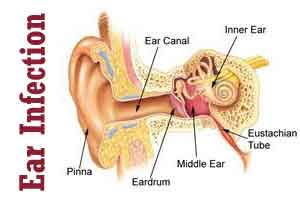- Home
- Editorial
- News
- Practice Guidelines
- Anesthesiology Guidelines
- Cancer Guidelines
- Cardiac Sciences Guidelines
- Critical Care Guidelines
- Dentistry Guidelines
- Dermatology Guidelines
- Diabetes and Endo Guidelines
- Diagnostics Guidelines
- ENT Guidelines
- Featured Practice Guidelines
- Gastroenterology Guidelines
- Geriatrics Guidelines
- Medicine Guidelines
- Nephrology Guidelines
- Neurosciences Guidelines
- Obs and Gynae Guidelines
- Ophthalmology Guidelines
- Orthopaedics Guidelines
- Paediatrics Guidelines
- Psychiatry Guidelines
- Pulmonology Guidelines
- Radiology Guidelines
- Surgery Guidelines
- Urology Guidelines
Study suggests earache might be a sign of rare cancer

Cancer of the ear is quite rare and most often develops in the outer skin. The condition can affect any of the three parts of the ear; the inner, middle or outer ear.
But what are the symptoms that one should keep in mind for this rare condition. Ear cancer symptoms vary, depending on where in the ear the tumour is located.
The main outer ear cancer symptom is a spot that does not heal within four weeks, according to Express.co.uk.
The spot may appear like a pink lump, with the hard scaly surface. They often bleed easily.
Hearing loss and earache could be signs of middle ear cancer.
The most common sign of middle ear cancer, however, is a discharge from the ear, which may have blood in it.
Pain inside the ear, headache, hearing loss, dizziness, or a ringing in the ear could be signs of inner ear cancer.
"The only way to confirm a diagnosis of cancer is to take a small amount of tissue [biopsy] from the abnormal area of the ear. This is then examined under a microscope. Doctors do not take biopsies of the inner ear. This is because it is very difficult to reach without causing problems to other structures around it. Your doctor will make a diagnosis using MRI scans and CT scans," said the researchers.
There are many treatments available for the ear cancers, which include surgery, radiotherapy and chemotherapy.
Surgery might be involved in completely removing the ear canal, part of the temporal bone, middle ear or inner ear.
But, if a patient has their middle or inner ear removed, it's unlikely that they will be able to hear on that side of the face again. This could affect balance and make the patient feel dizzy.

Disclaimer: This site is primarily intended for healthcare professionals. Any content/information on this website does not replace the advice of medical and/or health professionals and should not be construed as medical/diagnostic advice/endorsement or prescription. Use of this site is subject to our terms of use, privacy policy, advertisement policy. © 2020 Minerva Medical Treatment Pvt Ltd